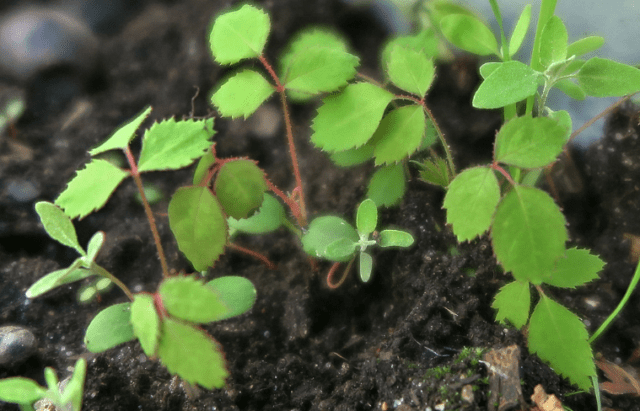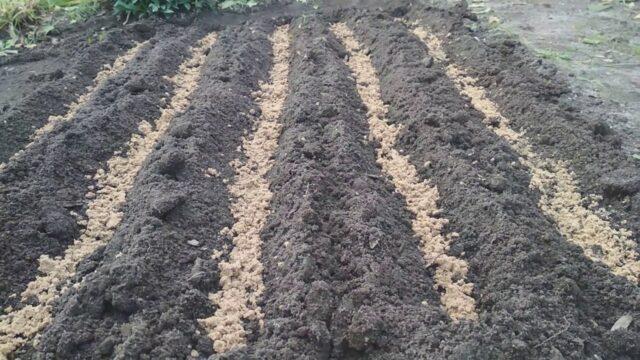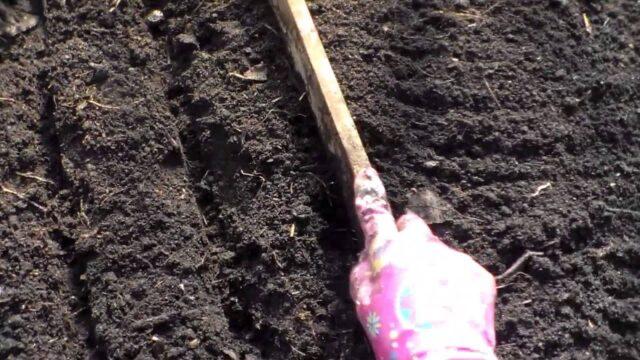Content
You can grow a rosehip from seeds at home without seedlings. The grains are harvested in August, when the fruits are not yet ripe, and immediately sent for stratification in a dark, cool and humid place. They can be sown in open ground before winter, and then mulched with sawdust. In the spring, when shoots appear, regular watering should be ensured. After the appearance of two leaves, they dive and continue to water, if necessary, feed them.
Is it possible to grow rose hips from seeds
Growing rose hips from seeds is carried out in two ways:
- Planting rose hips with seeds in open ground in the fall.
- Spring procedure in April-May after stratification.
Growing rose hips from seeds in the open field is possible immediately after harvesting in August. If you delay and purchase seed, for example, in early October, you can also plant it in the ground. To do this, make several rows and deepen the seeds by 1–2 cm, mulch and wait for the first shoots next spring. This method is used for growing wild species, as well as winter-hardy varieties.
The second option (spring planting) can be considered universal, since it allows you to grow both wild and cultivated rose hips. Seeds are purchased in autumn or winter and sent to the refrigerator for stratification (at least three months). Then they are germinated and planted in the ground in the second half of spring, when the soil has time to warm up to + 8-10 degrees Celsius.
Seed sowing dates
To grow a rosehip from a seed, you need to plant it on time. The timing depends on the growing method:
- With direct sowing in the ground - immediately after collecting the seeds (late August - early September).
- If you collect material for artificial stratification, it is placed in boxes with soil at the end of summer and taken to a cool place, for example, in a cellar or in a refrigerator.
- In the spring, sowing in open ground is carried out at the end of April or at the beginning of May. In the south, it is 1-2 weeks earlier, in Siberia and the Far East - on the contrary, later.
How to grow rose hips from seeds at home
Growing rose hips at home consists of several stages. The seeds of this plant are covered with a very dense skin. To destroy it, it is necessary to keep the planting material in a humid environment in cool conditions. First, the seed is sent for stratification, then for germination, and then planted in the ground.
Seed preparation and stratification
The first stage of seed breeding of rose hips is stratification, i.e. imitation of wintering. To do this, take seed purchased in a store or collected independently, and mix it with fertile, light, well-moistened soil. This can be a universal seedling soil or your own mixture of surface soil, black peat, humus and sand (ratio 2: 1: 1: 1).
Instead, you can use wet sand, which is pre-calcined. If you are not sure, you can also disinfect the soil mixture by watering it with a weak solution of potassium permanganate. Other ways are to put it in the freezer for a week or keep it in the oven for 15–20 minutes at a temperature of 130–150 degrees.
Sequencing:
- The container with the seed is kept at room temperature for several days so that the rosehip seeds have time to swell.
- Then cover it with a tight lid or foil. Place in the refrigerator on the bottom shelf with vegetables.
- In this form, the seed for cultivation is kept from one to three months (if necessary, it can be longer), up to planting on seedlings or in open ground.
- During storage, the soil must be monitored and periodically sprayed from a sprayer.
If possible, it is better to arrange a two-stage stratification for growing plants. At the first stage, the planting material is kept in the ground or in the sand for four months (from the end of August to the end of December) at a temperature of 12-15 degrees. On the second - another four months (from the first days of January to the last ten days of April) in the refrigerator at a temperature of + 3-5 ° C. It is in such conditions that the maximum germination is observed.
The fruits are planted to a depth of 2 cm, sawdust, straw, needles or other mulch are placed on top.
How to germinate rosehip seeds
Rosehip seeds can be germinated before sowing. This is an optional but desirable step. In order for the grains to smoothly come out of cool conditions and activate for growth, they are wrapped in a damp cloth and left in a bright room at room temperature (18–20 degrees Celsius). As soon as the sprouts hatch, they can be planted in an open bed (at the end of April) for further cultivation.
How to plant rose hips with seeds
For growing plants, choose an open, sunny place with fertile soil. The site is cleaned, dug up, if necessary, fertilizer is applied (by a bucket of compost or humus for 1-2 m2). To plant grains, they act in this way:
- Thoroughly level the surface with a rake or other tool.
- Several shallow (up to 3 cm) grooves are formed at a distance of 5 cm from each other.
- Seeds are planted to a depth of 2 cm with an interval of 5 cm.
- For the winter, mulch with sawdust, peat, straw or other mulch (in the case of autumn cultivation).
Follow-up care
For the successful reproduction of rose hips by seeds at home, it is necessary to provide proper care:
- In early spring, the mulch is harvested.
- They put a frame with a film or agrofiber to provide a normal microclimate for the seedlings.
- The plantings are regularly watered with warm, settled water. The soil should remain slightly moist - its drying out is unacceptable.
- Also, for normal cultivation, you need to dive crops in time. As soon as the seedlings have 2 leaves, they are transferred to a permanent place.
- After the night temperature stops dropping below 10-12 degrees Celsius, the film can be removed.

A pick is done in the early stages of growing, when each seedling will have at least two leaves.
In the first year of cultivation, fertilization is not necessary (if the soil is fertile enough). If the soil is depleted, you can apply urea or other nitrogen fertilizer, observing the dosage (15-20 g per 10 liters for irrigation of 1 m2 crops). It is also very important to keep the soil moist during the first stage of growing. To do this, you need to water it regularly, as well as use mulch, which will save the earth from drying out and temperature changes.
For successful cultivation, plantings are mulched with sawdust, humus, straw (layer height 5-10 cm). When the bushes grow up, they can be wrapped in agrofibre for the winter and dry leaves can be sprinkled inside.
When and how to harvest seeds for sowing
To grow a rosehip bush, it is important to know the timing and rules for collecting rosehip seeds. The material must be harvested from unripe berries - as soon as they began to turn red. The timing may vary depending on the characteristics of the variety and the climate of the region.In some cases, this is the end of July or the beginning of August, in others - the last days of summer.

Seeds for growing are harvested from those fruits that have just begun to ripen
All grains must be thoroughly washed and removed from the pulp. Then they are laid in one layer in a ventilated area and dried for several days. The grains can be sent for stratification for subsequent planting in the spring or sown in the garden for wintering in natural conditions.
The grains are immediately planted in fertile, light soil or in calcined sand: otherwise, they may not germinate next spring. Those. the sooner you start stratification, the better.
Conclusion
It is quite possible to grow a rose hip from seeds. A cellar or a regular refrigerator is suitable for stratification. The process takes three to six months. Therefore, the cultivation must be planned in advance: they begin to prepare the seeds already in August. Seed material is best purchased in a store, this will guarantee good germination and compliance of the crop with the declared characteristics.











